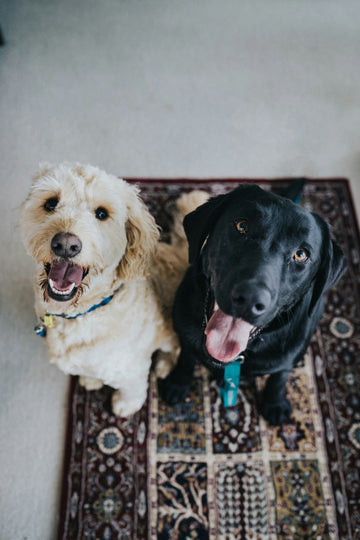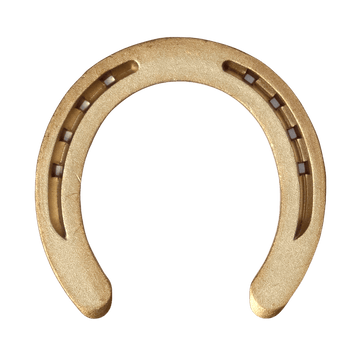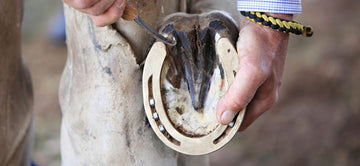The Top Anti-Itch Ointment for Dogs must consist of a powerful, soothing solution designed to provide effective relief for dogs experiencing itching, irritation, or skin sensitivities.
It also must have a blend of skin-calming ingredients, this ointment targets common causes of itching like dryness, hot spots, and minor skin allergies, promoting healing while preventing further scratching or discomfort.
And last but not least, it must also be easy to apply and gentle on your dog’s skin, this anti-itch ointment helps restore moisture and alleviate irritation, making it a go-to choice for pet owners dedicated to their pup's comfort and skin health.
So use this article to find out more about the top anti-itch ointment for dogs, what can cause itching with your pup, and so much more.
Understanding Itchy Skin in Dogs
Itchy skin in dogs, often affecting a dog's skin, is a common issue that can be caused by various factors, including allergies, parasites, and dry skin in dogs.
Understanding the underlying causes is crucial for providing effective relief and preventing further complications.
Common Causes of Itchy Skin
-
Allergies: Dogs can suffer from allergies just like humans. Common allergens include pollen, dust mites, mold, and certain foods. Environmental factors and seasonal changes can also trigger allergic reactions, leading to itchy skin. Allergic reactions occur when the dog's immune system overreacts to certain allergens, leading to itchy skin and other symptoms.
-
Parasites: Fleas, ticks, and mites are common culprits of itching in dogs. Flea bites can cause allergic reactions in some dogs, resulting in intense itching and discomfort.
-
Dry Skin: Just like humans, dogs can experience dry skin, especially in winter or in dry climates. Dry skin can lead to flaking, itching, and irritation.
-
Infections: Bacterial or fungal infections can cause localized itching and irritation. These infections may develop due to underlying allergies or skin conditions.
Signs of Itchy Skin
For hot spots and open sores, Dog wound sprays can aid in healing and prevent infection, offering targeted care where dogs scratch or bite. Recognizing the signs of itchy skin in your dog is essential for timely intervention. Common signs include:
-
Excessive Scratching: Dogs may scratch various body parts, including their paws, belly, and ears.
-
Licking and Chewing: Dogs may lick or chew their paws or other affected areas, leading to further irritation.
-
Rubbing Against Objects: Dogs might rub against furniture or the floor to relieve itching.
-
Skin Irritation: Look for redness, swelling, or the development of hot spots and open sores.
If left untreated, itchy skin can lead to secondary infections and other serious health issues.
Treatment Options for Itchy Skin
1. Topical Treatments
Healing dog shampoos enriched with skin-calming ingredients help maintain healthy skin and coat, reducing the risk of dryness and irritation. These treatments can also help strengthen the skin barrier, protecting against further irritation and infections. Consider these options:
-
Oatmeal Shampoo: A colloidal oatmeal shampoo can help soothe itchy skin during baths. Oatmeal has natural anti-inflammatory properties that calm irritation.
-
Medicated Shampoos: Shampoos formulated with medicated ingredients can help address specific skin conditions. Look for options containing hydrocortisone or other anti-itch agents.
2. Non-Shampoo Topicals
Non-shampoo topicals, like Dog healing sprays and ointments, offer convenient relief for itchy skin without requiring rinsing, making them ideal for on-the-go or frequent application. In addition to shampoos, various non-shampoo topical treatments can help:
-
Mousse Products: These products can soothe irritated skin and provide moisture without the need for rinsing.
-
Spot-On Therapies: Spot-on treatments often contain natural oils and anti-inflammatory ingredients that target localized itching.
3. Dietary Changes
Dietary adjustments can play a significant role in alleviating itchy skin:
-
Sensitive Skin Diet: Switching to a diet formulated for dogs with sensitive skin can help reduce allergic reactions and improve overall skin health.
-
Omega-3 Fatty Acids: Supplements rich in omega-3 fatty acids can reduce inflammation and improve skin health. Look for fish oil or flaxseed oil supplements recommended by your veterinarian.
4. In Severe Cases
In more severe cases of itching or skin irritation, consult your veterinarian to properly diagnose and treat the condition:
-
Antibiotics: If a bacterial infection is present, your vet may prescribe antibiotics to clear the infection and relieve symptoms.
-
Antifungals: For fungal infections, antifungal medications may be necessary to address the underlying cause of the itching.
Treating Sensitive Skin
For dogs with sensitive skin, it's essential to choose gentle treatments that won't exacerbate the issue. Here are some tips:
-
Natural Ingredients: Look for products containing soothing natural ingredients like aloe vera and oatmeal. These are less likely to irritate sensitive skin.
-
Avoid Harsh Chemicals: Steer clear of shampoos and treatments that contain harsh chemicals, dyes, or fragrances, which can worsen sensitive skin conditions.
When to Consult a Veterinarian
If your dog's skin condition does not improve with at-home treatments, it may be time to consult a veterinarian. Signs that indicate the need for professional help include:
-
Persistent Symptoms: If itching continues for more than a few days despite treatment.
-
Signs of Infection: Look for redness, swelling, discharge, or a foul odor coming from the dog skin.
-
Excessive Discomfort: If your dog is showing signs of distress or discomfort, immediate veterinary attention may be necessary.
Choosing the Right Anti-Itch Ointment for Your Dog’s Skin
Dog Skin sprays are another great option, providing instant cooling and soothing effects on irritated areas," could work well here. When selecting an anti-itch ointment for your dog, consider the following:
-
Natural Ingredients: Opt for products with soothing natural ingredients that will help calm your dog’s skin without causing additional irritation.
-
Skin Type Consideration: Assess your dog’s individual skin type and choose an ointment formulated to address their specific needs.
-
Read Labels: Always read product labels carefully to understand the active ingredients and ensure they are safe for your dog.
Common Mistakes to Avoid
-
Using Human Products: Many human anti-itch creams contain ingredients that can be toxic to dogs. Always opt for veterinary-recommended products designed specifically for pets.
-
Over-Bathing: Excessive bathing can strip the skin of its natural oils, leading to dryness and irritation. Consult your veterinarian for a suitable bathing schedule.
-
Ignoring Symptoms: Don’t ignore persistent itching or skin issues. Addressing the problem early can prevent more severe health concerns.
-
Neglecting Veterinary Care: If your dog’s itching persists or worsens, don’t hesitate to seek veterinary advice for tailored treatment options.
Finding Long-Term Relief for Your Dog’s Itchy Skin
To achieve lasting relief for your dog’s itchy skin, consider the following steps:
-
Identify the Underlying Cause: Work closely with your veterinarian to determine the cause of your dog's itching, whether it be allergies, parasites, or infections.
-
Comprehensive Treatment Plan: Develop a treatment plan that addresses the root cause of the itchiness. This may include dietary changes, topical treatments, and regular veterinary check-ups.
-
Lifestyle Adjustments: Incorporate routine grooming, a healthy diet, and regular exercise to support your dog’s overall skin health and minimize irritation.
Additional Support Strategies
-
Immunotherapy: For dogs with allergies, your veterinarian may recommend immunotherapy to help build tolerance to allergens over time.
-
Regular Monitoring: Keep track of your dog's skin condition and overall health to catch any changes early and adjust their care plan accordingly.
Frequently Asked Questions
1. What ointment can I put on my dog for itching?
Look for veterinary-recommended anti-itch ointments that contain natural soothing ingredients. Avoid human products unless specified as safe for dogs.
2. Can I use human anti-itch cream on my dog?
It is not advisable to use human creams on dogs unless directed by a veterinarian, as many ingredients can be harmful to pets.
3. Can I put Benadryl anti-itch cream on my dog?
Benadryl cream may not be suitable for dogs. Consult your veterinarian before applying any human medication to your dog.
4. How can I stop my dog from itching himself?
Regular grooming, using anti-itch treatments, and addressing any underlying health issues can help alleviate your dog’s itching.
Top Anti-Itch Ointment for Dogs Conclusion
Dealing with itchy skin in dogs can be challenging, but with the right knowledge and tools, you can provide your furry friend with the relief they need.
Top anti-itch ointments, combined with proper care and attention to their skin health, can make a significant difference.
Always consult with your veterinarian for personalized advice tailored to your dog's unique needs, and ensure your pup enjoys a happy, healthy life free from discomfort.













